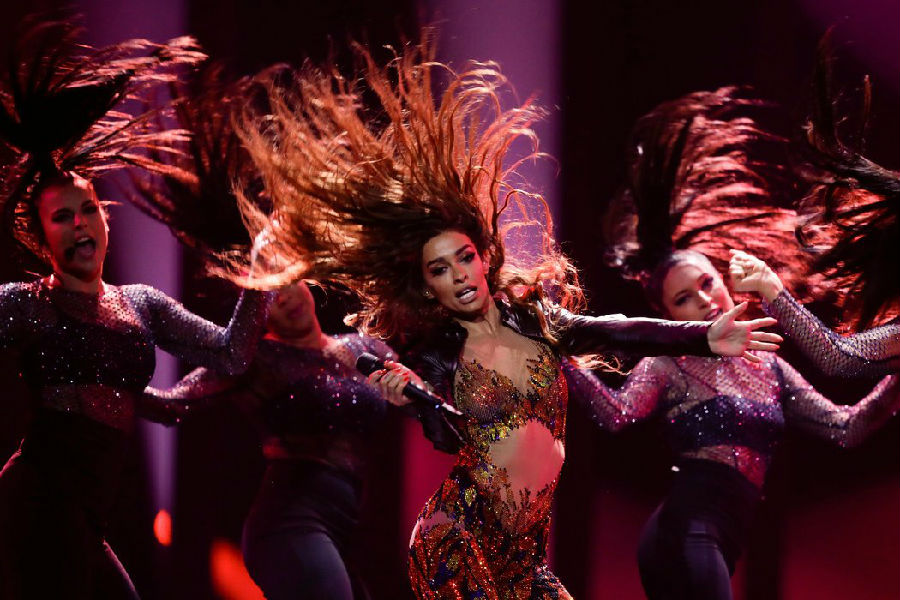When the Eurovision Song Contest opens in Lisbon today, it will be part of the largest edition yet of the zany annual pop competition. Forty-three countries will compete for the top prize, which is awarded in a grand final√ on Saturday.
欧洲歌唱大赛(Eurovision Song Contest)今天将在里斯本开幕,这将是这场年度流行音乐大赛迄今为止最盛大的一届。43个国家将角逐周六总决赛的最高奖项。
At the first contest, in Switzerland in 1956, there were 14 entries, all of them from Western Europe. But in 1961, socialist Yugoslavia joined, and the competition has steadily become ever more international and inclusive.
1956年,瑞士举行的第一届比赛共有14个参赛项目,而且全部来自西欧。但到了1961年,社会主义国家南斯拉夫加入,竞争日益变得国际化和具有包容性。
Israel first appeared in 1973; Australia, which used to broadcast the competition without taking part, has been sending contestants since 2015.
以色列在1973年首次参赛;澳大利亚曾经只转播比赛而没有参加,但自2015年以来,该国一直在派出参赛选手。

Despite its distinctly “euro” sensibility — which can be puzzling to the uninitiated — Eurovision is now a global phenomenon with fans all over the world.
尽管它有着明显的“欧洲”感——这可能会让不熟悉的人感到困惑——但欧洲歌唱大赛现在已经成为一个全球现象,粉丝遍布世界各地。
From the moment Eurovision was first broadcast in Australia, in 1983, Maria Bresic, who grew up in the suburbs of Sydney, said she and her parents, who were from Croatia, were hooked.
在悉尼郊区长大的玛利亚·布雷西奇(Maria Bresic)说,自从1983年,欧洲歌唱大赛首次在澳大利亚播出的那一刻起,她和她来自克罗地亚的父母都被迷住了。
“We would often stay up until ridiculous times to watch it,” Ms. Bresic, 50, said. (This year, the grand final√ begins at 5 a.m. Sydney time.)
现年50岁的布雷西奇说:“为了看比赛,我们经常熬夜直到荒唐的时候。”(今年的总决赛将从悉尼时间早上5点开始。)













